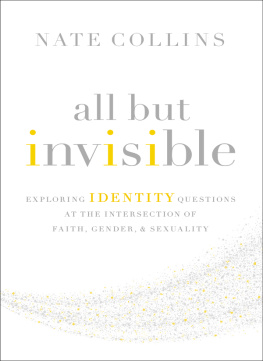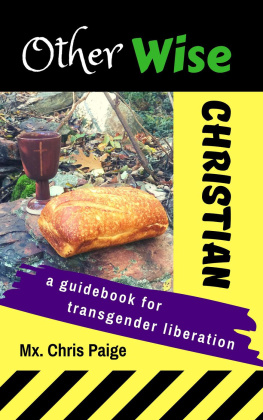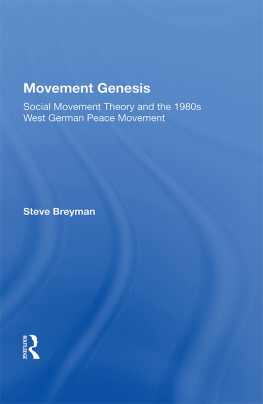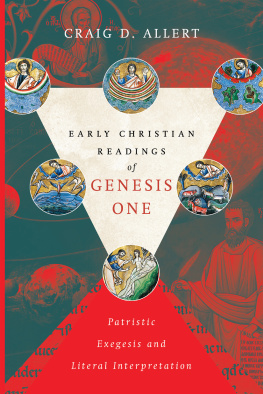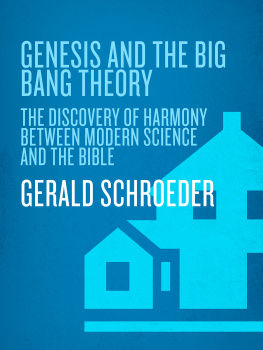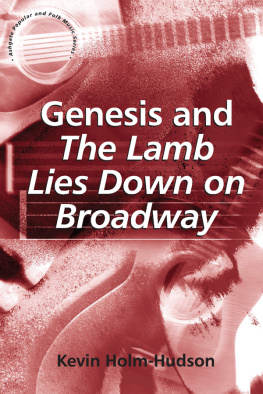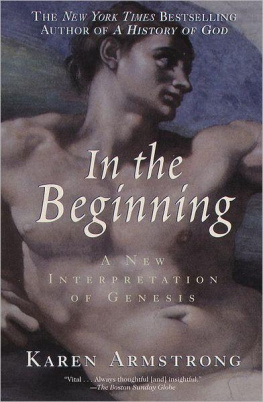Favale - The Genesis of Gender: A Christian Theory
Here you can read online Favale - The Genesis of Gender: A Christian Theory full text of the book (entire story) in english for free. Download pdf and epub, get meaning, cover and reviews about this ebook. year: 2022, publisher: Ignatius Press, genre: Religion. Description of the work, (preface) as well as reviews are available. Best literature library LitArk.com created for fans of good reading and offers a wide selection of genres:
Romance novel
Science fiction
Adventure
Detective
Science
History
Home and family
Prose
Art
Politics
Computer
Non-fiction
Religion
Business
Children
Humor
Choose a favorite category and find really read worthwhile books. Enjoy immersion in the world of imagination, feel the emotions of the characters or learn something new for yourself, make an fascinating discovery.

The Genesis of Gender: A Christian Theory: summary, description and annotation
We offer to read an annotation, description, summary or preface (depends on what the author of the book "The Genesis of Gender: A Christian Theory" wrote himself). If you haven't found the necessary information about the book — write in the comments, we will try to find it.
Favale: author's other books
Who wrote The Genesis of Gender: A Christian Theory? Find out the surname, the name of the author of the book and a list of all author's works by series.
The Genesis of Gender: A Christian Theory — read online for free the complete book (whole text) full work
Below is the text of the book, divided by pages. System saving the place of the last page read, allows you to conveniently read the book "The Genesis of Gender: A Christian Theory" online for free, without having to search again every time where you left off. Put a bookmark, and you can go to the page where you finished reading at any time.
Font size:
Interval:
Bookmark:
THE GENESIS OF GENDER
ABIGAIL FAVALE
IGNATIUS PRESS SAN FRANCISCO
Unless otherwise noted, Scripture quotations are from the Revised Standard Version of the BibleSecond Catholic Edition (Ignatius Edition), copyright 2006 National Council of the Churches of Christ in the United States of America. All rights reserved worldwide.
Quotations from encyclicals and other Vatican documents are taken from the Vatican website.
Excerpts have been taken from the English translation of the Catechism of the Catholic Church , Second Edition, 1994, 1997, 2000 by Libreria Editrice VaticanaUnited States Catholic Conference, Washington, D.C. All rights reserved.
Cover art:
Harald Slott-Moller, Adam and Eve , 1891 (detail)
National Gallery of Denmark, Copenhagen
Public domain
Cover design by John Herreid
2022 by Ignatius Press, San Francisco
All rights reserved ISBN 978-1-62164-408-8 (PB)
ISBN 978-1-64229-217-6 (eBook)
Library of Congress Control Number 2021940718
Printed in the United States of America
For our sons and daughters.
May they know their true worth .
This has been a difficult book to bring forth, and I have many skilled midwives to thank.
First, my gal pals: Hayley McCullough, Cassie Meadows, Jessica Rolfe, Merissa Zielinksi, and Erika Barber. Your prayers and encouragement buoyed me up through many moments of fear and self-doubt.
To my soul-friend Lindsay Tsohantaridis especially, who read through the rough cut, and whose friendship is one of my great consolations.
To all who have shared their stories, speaking honestly about gender dysphoria and transition, especially Daisy Chadra, Laura Reynolds, and Adelynn Campbell, who entrusted their stories to me, a sacred thing. And to one particular woman, who prefers anonymity, who showed me how best to support the dignity of intersex people like herself.
To those who helped me think through my own thoughts, saying yes to a stranger asking for a Zoom chat: Angela Franks, Erika Bachiochi, Stephen Adubato, Isaiah Jones, and Benjamin Boyce.
To Artur Rosman, editor of Church Life Journal , who graciously gave me permission to pillage some words from my Church Life essays and weave them into this book.
To Corynne Staresinic, founder of The Catholic Woman , who helped me envision what Catholic feminism could look like.
To Mark Brumley, for taking a chance on me, and to Suzanne Lewis, Thomas Jacobi, and Abigail Tardiff, all good shepherds throughout the editing process.
To Michael and our children, who, more than anything, reveal to me daily the depth of divine love and the sacramental beauty of the body.
Abigail Favale
October 15, 2021
Feast of Saint Teresa of vila
In the spring of 2015, I was teaching a course on gender theory at a Christian university. This was a course Id taught for years, but never in quite the same way. Gender theory was ever morphing, as were my students, and I was pivoting constantly, trying to keep up with the latest jargon and trends. This time was different. I was in the midst of two dramatic upheavals in my personal life: the birth of my second child, which happened in the middle of the semester, and a tumultuous conversion to Catholicism, which was upending everything I thought I knew. I found myself both giving birth and being bornmy body turned inside out to bring forth a daughter; my soul turned inside out to make room for Christ. Each of these births, like every birth, was an engulfing paradox of beauty and agony.
My physical labors tend to go quickly. Spiritual labor, not so much. I began that semester as a half-brewed convert: technically Catholic, but not yet inwardly Catholic. I was in a strange and dizzying in-between. When I joined the Church in 2014, I assumed I would become a cafeteria Catholic, lugging my cherished progressive beliefs into the Church and taking shelter under the canopy of conscience. Then something terrible happened. My conscience started to rebel. The progressive beliefs I was carrying began to feel less like personal belongings and more like baggage: burdensome and out of place.
The world Id inhabited comfortably as a feminist academic started to make less sense. I was like Platos unhappy cave dweller, stumbling out of the murk into blinding daylight for the first time. The shadows on the stone walls behind me, once so clear and disturbingly real, now seemed cartoonish and oversized. Yet moving beyond the cave was terrifying; my eyes had not adjusted to a world lit up by the sun, so I lingered in the entrance for a while, stranded in the half-light.
Teaching gender theory in that state was bewildering, to put it mildly. While discussing essays Id taught a dozen times, I was suddenly plagued by unbidden questions, noticing gaps and inconsistencies that had never troubled me before. Over the semester, it became increasingly clear to mein little epiphanies of horrorthat Id been living in a cave for over a decade, mistaking it for reality. In pursuing my love for womens literature and my abiding interest in womens experiences, I had entered a field of study that came prepackaged with its own totalizing worldview, a worldview I gradually absorbed. Id become an ideologue without realizing it.
I remember one particular class session, when my students and I were wrangling with an essay by Judith Butler, a prominent gender theorist. In the essay, Butler rolls out her concept of gender performativity: gender as something we do , rather than something we are. (Ill discuss Butler in more detail in chapter 3.) Like most critical theorists, Butler writes in all but impenetrable prose; nonetheless, my students readily embraced her idea of gender as a performance. What they didnt fully recognize is that Butler asserts gender is only a performance, that women dont really exist, and that any truth claim is ultimately an exercise of power. These ideas, which might not have been so appealing to my students, remained well hidden below the surface, obscured under opaque jargon. My students skimmed along the topsoil, grasping a few blooms here and there, but they never got a good look at the root. Only now catching my first real glimpse, I wasnt much help to them.
I left class that day feeling defeated and unsure why. Id taught this text to undergraduates before, many times, with an untroubled conscience. In fact, Id often felt good about exposing my students to heady and trendy theories about gender. When they voiced newfound uncertainty and confusion, as they usually did at the end of the course, Id feel satisfied, as if my central task as a gender studies professor was to disrupt and unsettle their tidy and simplistic views, to expose them to irresolvable complexity. Now that work of disorientation, without any effort at reorientation, began to unsettle me. My conscience, after giving me reassuring high-fives for the past decade, was now clearing her throat in the backroom of my mind and asking: So, is any of this true ?
In this state of unease, I sought the advice of an older professor I respected. I rushed to his office straight from home, my hair still wet from a recent shower. I was newly back from maternity leave, always five minutes behind and sweating profusely, trying to cram all I could into the three-hour windows between breastfeeding sessions. I showed up with a Diet Coke in hand, thinking I would be having a nice, casual chat with a colleague. Within five minutes I was in full-blown confession mode, disclosing the indictments of my conscience not to a priest, but to a gray-bearded Quaker with a Gandalf vibe. I feel like Ive been giving my students poison to drink, I said. For so many years, Id been careless, careless with their minds and, most disturbingly, their souls.
Next pageFont size:
Interval:
Bookmark:
Similar books «The Genesis of Gender: A Christian Theory»
Look at similar books to The Genesis of Gender: A Christian Theory. We have selected literature similar in name and meaning in the hope of providing readers with more options to find new, interesting, not yet read works.
Discussion, reviews of the book The Genesis of Gender: A Christian Theory and just readers' own opinions. Leave your comments, write what you think about the work, its meaning or the main characters. Specify what exactly you liked and what you didn't like, and why you think so.

